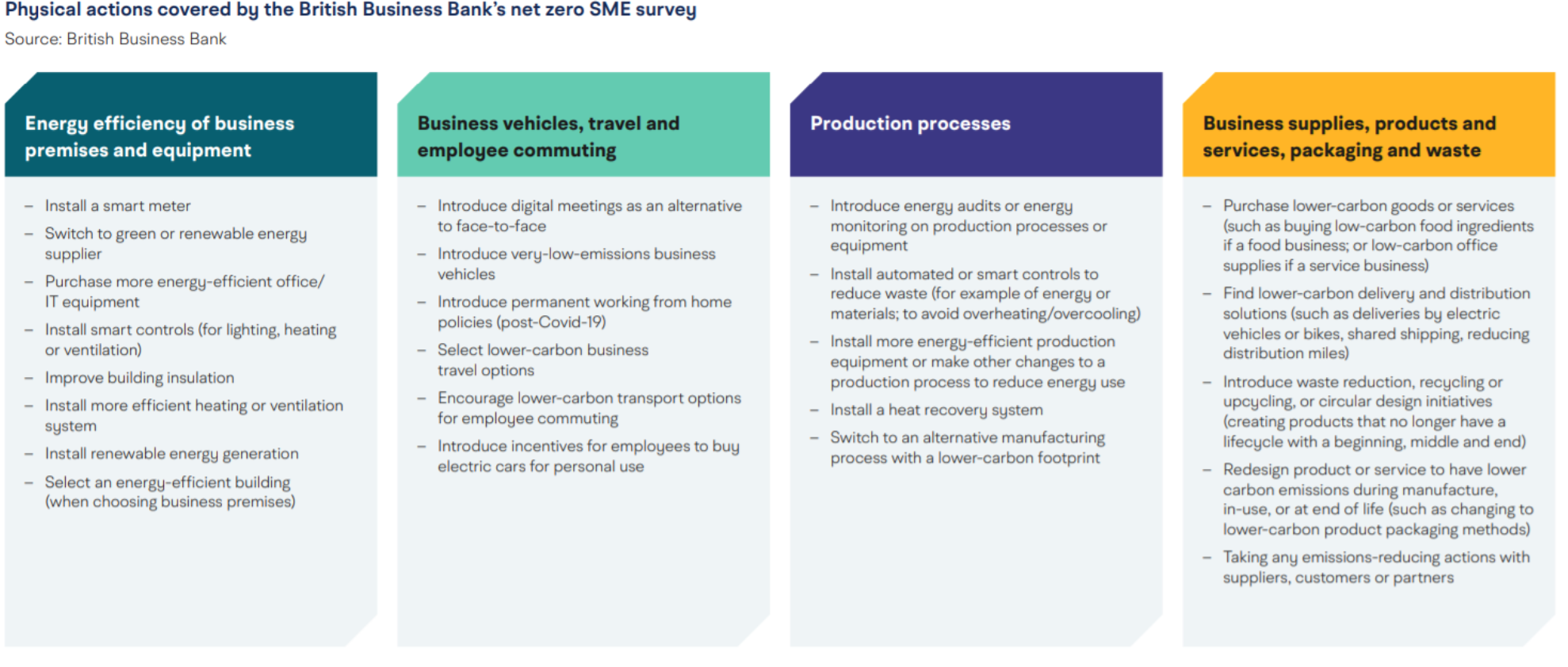Green Finance
COP26 roundup: What can UK SMEs expect?
12 Nov 2021
The 2021 United Nations Climate Change Conference, otherwise known as COP26, took place at the SEC Centre in Glasgow between 31 October and 12 November 2021. The summit united parties with the ultimate aim of accelerating action towards the goals of the Paris Agreement and the UN Framework Convention on Climate Change.

The effect of climate change is already causing devastation across the globe. To avoid catastrophic disruption, the world must quickly shift to a Net Zero economy, where the amount of carbon we emit doesn’t exceed what we remove.
SMEs account for somewhere between 29-36% of total GHG emissions in the UK. If we’re to achieve the ambitious goals set out in COP26 and protect people and nature from the catastrophic impacts of the climate crisis, all of us must play our part.
Although lots of businesses are already doing amazing things when it comes to sustainability, there’s still a lot more to do. But with the right mindset, skills and access to business funding, we believe the business community has what it takes to make a change.
COP26 - 8 key takeaways for businesses
You’ll find a rundown of the COP26 outcomes on the summit’s official website. Here are a few key takeaways we’ve identified that UK businesses may find particularly relevant.
Addressing COP26, Rishi Sunak outlined a vision for transforming the UK into the world's first ‘Net Zero Aligned Financial Centre’. He explained how increased public investment, mobilised private finance, and rewiring the global financial system can deliver clean air and water; cheap, reliable and clean electricity, and more.
One major COP26 outcome was the Mission Innovation - Breakthrough Energy Collaboration Agreement, the $100bn annual climate finance goal that will deliver $130 trillion of private finance aligned with net zero emissions via the Glasgow Financial Alliance for Net Zero. These commitments, from over 450 firms across 45 countries, can deliver ~$100 trillion of finance over the next three decades.
The majority of Britain's biggest listed businesses have signed up to eliminate their greenhouse gas emissions by 2050, with 60 companies in the FTSE 100 part of the United Nations' Race to Zero campaign. With 13 FTSE 100 firms joining the campaign since August, it means UK businesses with a total market capitalisation of more than £1.2trn and a combined annual turnover of £700bn are now involved.
A 190-strong coalition agreed to phase out coal power and end support for new coal power plants. Major international banks committed to effectively end all international public financing of new unabated coal power by the end of 2021.
The UK Government marked Ocean Action Day with finance to support ocean resilience and increased commitments to protect 30% of the world's oceans by 2030. Lord Goldsmith brought together speakers John Kerry, United States Special Presidential Envoy for Climate and oceanographer Dr Sylvia Earle in the Ocean Action Event, pushing for ambitious steps towards ocean health and resilience.
45 governments pledged urgent action and investment to protect nature and shift to more sustainable ways of farming. Meanwhile, 95 high profile companies from a range of sectors committed to being ‘Nature Positive’, agreeing to work towards halting and reversing the decline of nature by 2030.
The UK confirmed its pledge for zero-emission HGVs by 2040. Combined with its 2030 phase out for petrol and diesel cars and vans, it represents a world-leading pledge to end the sale of all polluting road vehicles within the next two decades.
The UK also unveiled a new design for electric vehicle charge points. It was showcased in the UK Pavilion at COP26 and designed together with the Royal College of Art and PA Consulting. The concept prioritises inclusivity and ease of use.
How can SMEs lead the way to Net Zero?
CBI director-general Tony Danker has called on all companies to "step up and lead", warning that "businesses who fail to embrace net zero will get left behind". Those yet to set their green business goals into action must join the growing number of businesses adapting their products and practices to reduce their impact on the environment.
Martin McTague, the national vice-chairman of the Federation of Small Businesses, says:
“The COP26 summit has underlined how vital it is for all parts of society to be mobilised to meet the net zero carbon target. With small firms making up more than 99% of all UK businesses, getting them on board is key.
“With prospective customers now viewing sustainable business practices as a key consideration, no small business can afford to ignore the environment.”

New research by the British Business Bank reveals that the biggest barrier to businesses achieving their sustainability goals is costs. 35% of survey respondents cited costs as the most significant barrier, with upfront costs being the most cited component of this at 21%.
Clearly, access to business finance is part of the solution to driving more action.
11% of UK smaller businesses have already accessed external finance to support Net Zero actions, and 22% say they are prepared to do so in the next five years. 37% of firms say they would be happy to take out finance in order to grow.
Funding to help businesses achieve net zero
Bank and non-bank lenders alike are making it easier for businesses to fund their green ambitions. For example, HSBC recently launched its £500m Green SME Fund as part of its commitment to support businesses to transition and thrive in a low-carbon economy.
Fintechs are also on a mission to make green funding more accessible. At Funding Options, our Green Finance Marketplace is bringing greater transparency and awareness of the funding options available to support SMEs in achieving their net zero goals.
Businesses can use our platform to find funding for the purchase of green assets such as solar panels or clean vehicles. Lenders who sign up to the platform are matched with green businesses displaying strong environmental credentials, such as those participating in renewable, low/zero carbon or sustainable activities.
If you’re ready to kickstart a green project, now’s the time to secure funding.
Get startedSubscribe to our newsletter today
Sign up for the best of Funding Options sent straight to your inbox.
